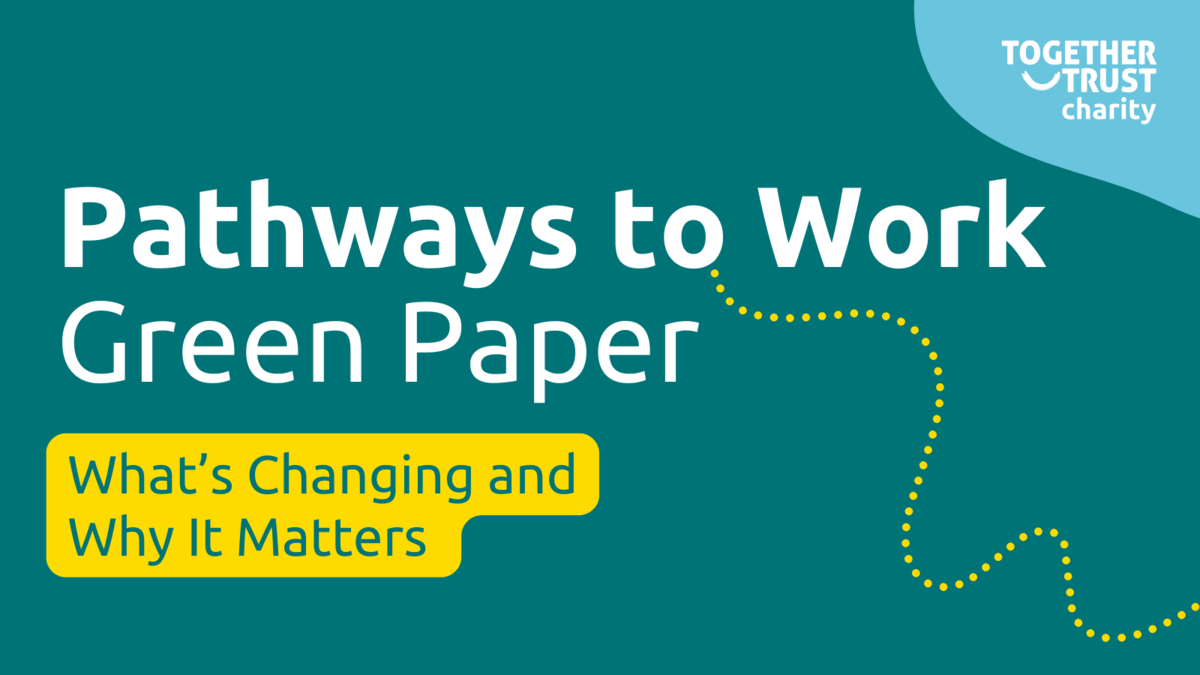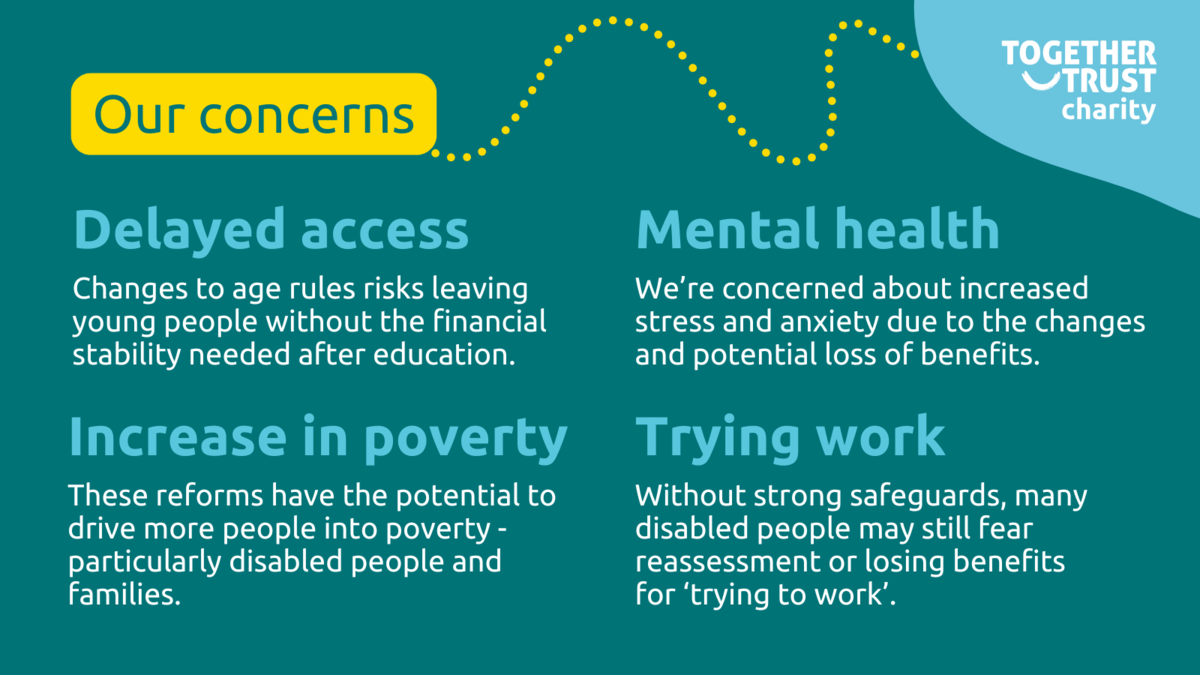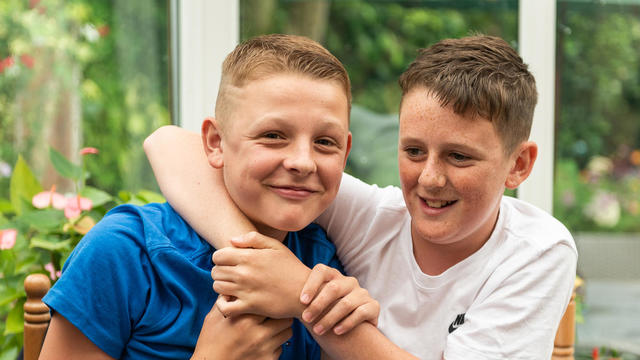Pathways to Work Green Paper: What’s Changing and Why It Matters

In March 2025, the Government unveiled plans to reform the welfare system in the Pathways to Work: Reforming Benefits and Support to Get Britain Working Green Paper. These proposals were further detailed in the Spring Statement on Wednesday 26 March.
No immediate changes
While there are no immediate changes, the proposed reforms are expected to result in financial losses for many. The changes are scheduled to begin rolling out from April 2026.
Summary of Proposed Changes in the Green Paper
Scrapping the Work Capability Assessment (WCA)
The Government has announced that it will scrap the Work Capability Assessment (WCA) in 2028/29. From this point, they will use the PIP assessment for all health and disability benefits in England and Wales.
The additional health element in UC will be based solely on whether someone receives the Daily Living Award in PIP, not their ability to work.
Changes to PIP and Universal Credit (UC)
The new rules will require individuals to score at least 4 points in one daily living activity to qualify for the PIP daily living component. This change will apply to new and existing claimants at their next award review. There is an intention to implement these changes in 2026/27, possibly as early as November 2026. The mobility component will remain unaffected.
The UC standard allowance will increase by £7pw from £91 in 2024/25 to £98pw by 2026/27. The Government will then freeze the health element of UC at £97pw until 2029/30. For new claimants, it will be reduced to £50pw from April 2026and remain frozen until 2029/30.
Exemptions and Premiums
People with “the most severe, life-long health conditions, who have no prospect of improvement and will never be able to work” will be exempt from future reassessments. The Government is considering offering these individuals an “additional premium”, but the list of eligible conditions remains undefined.
People assessed as limited capability for work and work-related activity (LCWRA) before April 2026 will continue to receive the UC health element, provided they meet the criteria following reassessment.
Trying Work
The Government plans to introduce legislation stating that trying work will not lead to a reassessment or potential loss of benefits.
This legal guarantee will apply to people receiving Universal Credit (UC), Personal Independence Payment (PIP) in England and Wales, or New Style ESA. The Government plans to bring this legislation forward as soon as possible and apply it to the current and reformed systems.
Changes to Age Rules
The Government is consulting on raising the age of transition from Disability Living Allowance for children (DLAc) to PIP from 16 to 18. These changes mean some claimants may benefit financially but others will likely face financial losses.
They are also considering delaying access to the UC health element until age 22, meaning delays in when young disabled people can receive additional support.
How Does This Connect to Our Policy Positions?
There are growing concerns that rather than offering support, the reforms will push more people into poverty, including children.
We support an increase to UC of £20pw and endorse the Essentials Guarantee, which could lift 400,000 children out of poverty (Action for Children, 2023). However, the changes planned for April 2026 fall short of this standard.

How the Proposed Reforms Conflict with Our Policy Calls
Increase in poverty
We are concerned that the proposed welfare reforms will drive more people into poverty rather than providing the support intended. The Government’s Health and Disability Reforms Impact Statement estimates that by the year ending 2030, 250,000 more people will be living in relative poverty after housing costs, including 50,000 children.
This move directly conflicts with our call for a long-term solution to the cost-of-living crisis, including increasing UC in line with the Households Cost Index.
It risks pushing more disabled people and their families into poverty, which is particularly concerning in the context of our work, highlighting family poverty as a key factor in children entering the care system.
We support a £20 per week increase to Universal Credit and back the Essentials Guarantee, which could potentially lift 400,000 children out of poverty (Action for Children, 2023). However, the upcoming changes planned for April 2026 fall well short of this standard.
Changes to age rules (delaying PIP and UC access until 18/22)
Extending Disability Living Allowance (DLA) to age 18 could reduce pressure for some young people by avoiding an early PIP assessment and easing administrative burdens during exams and post-16 transitions. Yet, for many, it raises serious concerns about delayed access to wider financial support.
This change would create a four-year gap between the end of DLA at age 18 and access to health-related support in Universal Credit at age 22. The change risks leaving young people with SEND, care leavers, and those without family support without the financial stability needed to navigate the critical years between education and adulthood.
Without timely access to the UC health element or linked benefits such as carer’s support or motability, disabled young people could face barriers to independence, reduced access to housing or training and worsening mental health at a time of significant transition.
Trying work
We welcome the Government’s commitment that “trying work” will not trigger a reassessment, but it will only be effective if it is clearly communicated and widely trusted. Without strong safeguards, many disabled people—especially young people—may still fear reassessment or losing benefits during a time of wider system change.
It’s encouraging to see recognition that people with lifelong disabilities shouldn’t face repeated assessments. However, there’s still no clarity on how this will be determined or applied.
This shift aligns with our call to reduce reassessment pressures for those with lifelong conditions. But without clear guidance, young disabled people may still be discouraged from trying work.
Mental health
There is likely to be increased stress and anxiety among disabled people due to reassessments, changes in eligibility, and the potential loss of benefits. This uncertainty can lead to a deterioration in mental health, particularly if individuals feel pressured to attempt work that is not suitable or reasonable for their circumstances.
In addition, the loss of financial support may push people into poverty, which is known to contribute to poor mental health outcomes and can make it even harder to access or sustain employment.
Have your say
The consultation is open until 11:59pm on 30 June 2025.
The government is also hosting in-person and virtual consultation events from April to June 2025.
Stay informed about our work by:
-
Signing up to our campaign updates
-
Checking our website news





